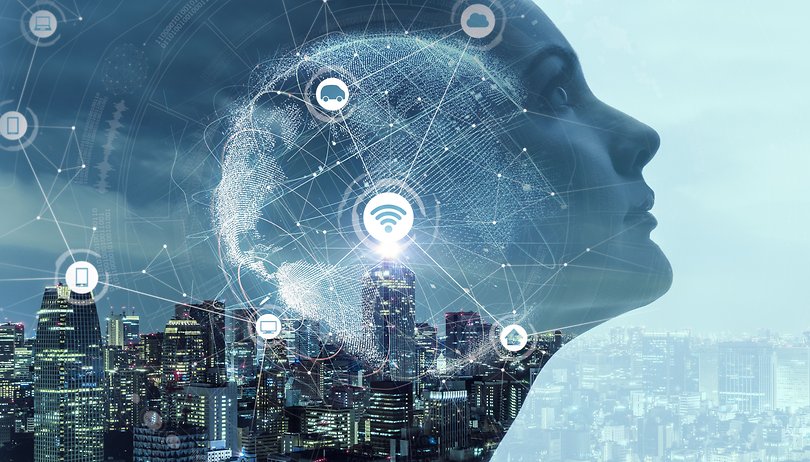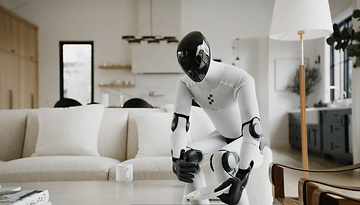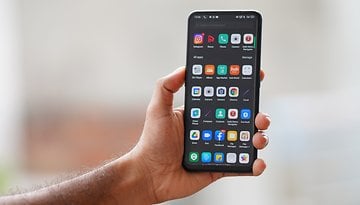5 ways AI will influence our lives in 2019


'AI' followed up on 'Blockchain' as the hottest tech buzzword of 2018, but this year will see artificial intelligence become more and more apparent in everyday life. Of course, with AI working invisibly behind our smartphones, cameras industrial equipment and more, you might find it hard to notice. These are the top AI trends to look out for in 2019.
Chatbots will take on more roles, and become more human
Chatbots aren't exactly new but, although businesses have employed them for some years now, engaging with a chatbot as a customer was usually a pointless exercise in frustration as the bot spewed out the same rote (wrong) answers over and over again.
But in 2019, AI-powered customer service will become more sophisticated. Not only will chatbots of the future get better at chatting, but they'll also do it with a human face, or human voice. Autodesk's virtual customer assistant Ava, for example, leverages Deep Learning to help customers with something approaching a recognizable face and personality. has a female face and voice that speaks in a way that lines up with the company's brand. We also saw a similar phenomenon in a different role come from China, with an English language AI anchor able to present the news with realistic facial expression and body movement.
Sophisticated AI with a human face like this virtual news anchor will become more common:
While a human face and more natural speech will make chatbox interactions more pleasant, most of us will hope that main advancement will be the ability to actually solve our problems more efficiently. Even if we don't 'see' humanoid AI, chances are we'll still end up talking to one.
Speech recognition will become normal
2018 was the year that saw Amazon Alexa, Google Home and Assistant, and Apple's Siri all become household names. And yes, Bixby and Cortana are there too. Once these assistants already have an impressive skill-set, but as they become more ubiquitous, expect more and more services to integrate voice recognition. 66.6 million Americans are projected to be using speech or voice recognition technology by 2019, and companies will want to cash in on this.
Thanks to AI you can perform web searches, check weather and schedules and shop with your voice, but the range of real-world devices that can be controlled this way is expanding. Voice control is already available in lighting, TVs, sound systems, cars and even microwaves.

The usefulness of voice assistants is due to advances in natural language processing, the field of teaching machines to both understand and generate human language. As more and more data is analyzed and learned, machines will get better at tricky issues such as nuance, subtext and accents until they almost perfectly mimic humans.
Image recognition will power security - and surveillance
Smartphone fans probably started to become familiar with image recognition thanks to their smartphone cameras, either through apps like Google Lens (facial recognition unlocking, the latest method of securing access to our precious smartphones.
Image recognition is also necessary for empowering the self-driving cars of the future, as well as autonomous robots, and the next generation of AR glasses, but it also has a big dark side. Naturally, security forces are very interested in the ability to recognize and track human faces, a technology that has already caused controversy in China where it has been used to oppress minorities and dissidents. But it's not limited to China. Facial recognition in law enforcement is being trialed in western countries, most recently in the UK.
Slowly but surely enough, trials will lead to full-on implementation, and the public will have to face up to whether they are comfortable with the 'smart' cameras being invested with the force of the law in their decision-making.
You won't be able to trust what you see
Perhaps an even more problematic issue than image recognition is image manipulation. Graphic designers, animators, game studios and visual artists will delight in the ability to depict people and objects with perfect realism, but it will also cause problems. In 2018 we saw concerns raised over so-called 'DeepFakes', in which neural networks were used to swap out the faces of actors in films with someone else. Thanks to AI, a new wave of disturbing fake celebrity porn was produced, but also more lighthearted fun, such as the insertion of Nicholas Cage into a variety of roles in different films.
One of the best illustrations of just how the combination of machine learning enabled voice-and-image fakery could have distressing consequences was illustrated by Buzzfeed in 2018. The media outlet enlisted AI and the help of actor Jordan Peele to create an uncanny simulation of former president Barack Obama, shown below:
If you thought that 'fake news' and deliberate misinformation spread by shady corporations, unscrupulous pranksters or government agents (foreign or otherwise) was bad over the last couple of years, just wait until viral deepfake videos are used to stoke outrage using fake footage of celebrities or politicians, putting words in their mouths or showing events that never happened.
Of course, machine learning can also be used to analyze potential fake videos and images and spot the telltale signs of meddling, leading to a kind of arms race with AI on both sides, the fakers and fact-checkers. For the general public quickly parsing headlines on social media without the time to resort to these tools, a good resolution should be to evaluate one's media sources more carefully.
AI will improve our health and potentially save lives
Even though the latest consumer gadgets may delight us with new smart functions, the biggest benefit that many of us may get from AI in 2019 could well be the saving of our lives, or at least the improvement of our health, thanks to machine learning quietly working away behind the scenes.
We've previously reported how Google, Microsoft, Amazon and Facebook are all investing money into digital health technology, with the overarching philosophy being that prevention is better than the cure, and much of the diagnostic effort can more effectively be offloaded onto machines.
The estimated amount of time required for a human doctor to keep on top of medical knowledge clocks in at 160 hours per week reading new research papers. AI can do this in almost a fraction of the time, plus search through millions of patient records at lightning speed, and learn the connections between symptom and disease, resulting in a higher accuracy rate for diagnosis. AI can also more effectively scan the retina to recognize early symptoms of oncoming blindness, and can even help paralyzed people to speak again.
These are just a few developing trends to watch out for as AI moves from buzzword to everyday fact of life in 2019. Are there any other areas of AI that you are watching with interest? Let us know in the comments!













